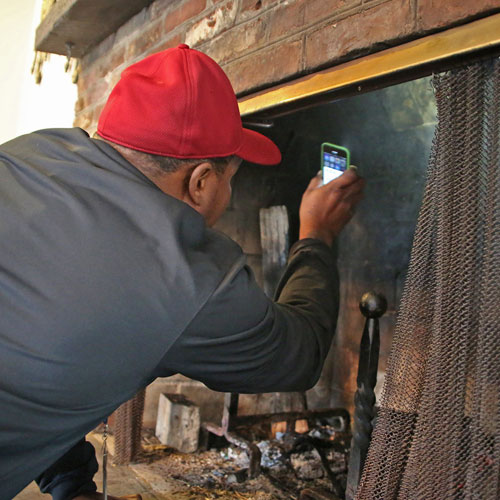Dirty Chimney or Not, Your House Probably Isn’t Going to Catch on Fire
Psst, I’ve got something to tell you. You won’t hear this from many chimney sweeps, but I’ll shoot straight with you:
Your house is probably not going to catch on fire, even if your chimney is atrociously dirty. Instead, thanks to your dirty chimney you’ll probably deal with a whole host of other problems: a stinky chimney, a smoky chimney, a chimney that critters like to call home, etc.
But short of the yearly apartment fire because a chimney caught fire in an apartment complex and the occasional house fire that you see on TV, over 14 years in this business I’ve seen only two complete losses in Kansas City in all the time. I was called out on both of them to do an evaluation to look into why the fire occurred and what caused it and to do the full work up on the chimney. In one fire we determined that the wood stove was to blame, and in another we blamed the fireplace.
 Nevertheless, the easiest way to convince someone that their chimney needs to be cleaned is to tell them it will protect them from a house fire. But the truth is that a chimney’s most important job is to contain fires so that they don’t spread to the home. And most all chimneys—filthy-dirty or not—will do just this.
Nevertheless, the easiest way to convince someone that their chimney needs to be cleaned is to tell them it will protect them from a house fire. But the truth is that a chimney’s most important job is to contain fires so that they don’t spread to the home. And most all chimneys—filthy-dirty or not—will do just this.
While I have yet to see a dirty chimney resulting in the total loss of a house, I have certainly seen centralized fires or contained fires in homes. Though everyone always hears about chimney fires, most of the chimney fires that you hear about don’t catch the house on fire. That’s because the chimney did its job: It saved your house long enough for the firefighters to be able to get there and put the fire out. At that time, your chimney is damaged and compromised, but the rest of your home should be just fine. And if your chimney is repaired properly, you can be right back in business.
Now, the couple of times that I have seen a little bit more loss have been when the chimney fires originated in a smoke chamber area. These fires usually occur because of embedded combustibles or pyralization, when heat is transferred to that smoke chamber and catches that wall on fire. In any case, chimneys are designed to contain fires, and they most always do.
There are lots of great reasons to have your chimney cleaned—and I’m happy to tell you all of them in a future post—but for now, I just thought I’d let you in on this dirty little industry secret.



